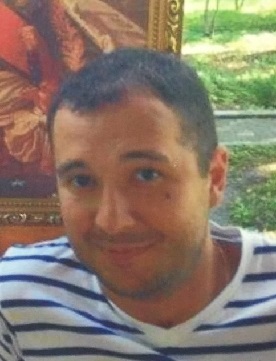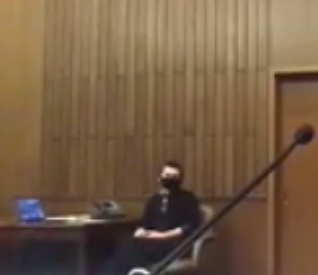
Computer security, cyber security, digital security or information technology security is the protection of computer systems and networks from attacks by malicious actors that may result in unauthorized information disclosure, theft of, or damage to hardware, software, or data, as well as from the disruption or misdirection of the services they provide.

The Computer Fraud and Abuse Act of 1986 (CFAA) is a United States cybersecurity bill that was enacted in 1986 as an amendment to existing computer fraud law, which had been included in the Comprehensive Crime Control Act of 1984. Prior to computer-specific criminal laws, computer crimes were prosecuted as mail and wire fraud, but the applying law was often insufficient.

Gary McKinnon is a Scottish systems administrator and hacker who was accused in 2002 of perpetrating the "biggest military computer hack of all time", although McKinnon himself states that he was merely looking for evidence of free energy suppression and a cover-up of UFO activity and other technologies potentially useful to the public. On 16 October 2012, after a series of legal proceedings in Britain, then Home Secretary Theresa May blocked extradition to the United States.
A security hacker is someone who explores methods for breaching defenses and exploiting weaknesses in a computer system or network. Hackers may be motivated by a multitude of reasons, such as profit, protest, information gathering, challenge, recreation, or evaluation of a system weaknesses to assist in formulating defenses against potential hackers.

Titan Rain was a series of coordinated attacks on computer systems in the United States since 2003; they were known to have been ongoing for at least three years. The attacks originated in Guangdong, China. The activity is believed to be associated with a state-sponsored advanced persistent threat. It was given the designation Titan Rain by the federal government of the United States.
An advanced persistent threat (APT) is a stealthy threat actor, typically a state or state-sponsored group, which gains unauthorized access to a computer network and remains undetected for an extended period. In recent times, the term may also refer to non-state-sponsored groups conducting large-scale targeted intrusions for specific goals.

The United States has often accused the government of China of attempting unlawfully to acquire U.S. military technology and classified information as well as trade secrets of U.S. companies in order to support China's long-term military and commercial development. Chinese government agencies and affiliated personnel have been accused of using a number of methods to obtain U.S. technology, including espionage, exploitation of commercial entities, and a network of scientific, academic and business contacts. Prominent espionage cases include Larry Wu-tai Chin, Katrina Leung, Gwo-Bao Min, Chi Mak and Peter Lee. The Ministry of State Security (MSS) maintains a bureau dedicated to espionage against the United States, the United States Bureau.
Cyberwarfare by China is the aggregate of all combative activities in the cyberspace which are taken by organs of the People's Republic of China, including affiliated advanced persistent threat groups, against other countries.
Teamp0ison was a computer security research group consisting of 3 to 5 core members. The group gained notoriety in 2011/2012 for its blackhat hacking activities, which included attacks on the United Nations, NASA, NATO, Facebook, Minecraft Pocket Edition Forums, and several other large corporations and government entities. TeaMp0isoN disbanded in 2012 following the arrests of some of its core members, "TriCk", and "MLT".
Stephen P. Heymann is an attorney who formerly served as an Assistant U.S. Attorney for the District of Massachusetts. He is no longer with the U.S. Attorney's office. He headed U.S. Attorney Carmen Ortiz's Internet and Computer Crimes Unit. Heymann is infamously known for his role in the United States v. Swartz federal criminal case which directly led to the suicide of activist Aaron Swartz.

Roman Valerevich Seleznev, also known by his hacker name Track2, is a Russian computer hacker. Seleznev was indicted in the United States in 2011, and was convicted of hacking into servers to steal credit-card data. His activities are estimated to have caused more than $169 million in damages to businesses and financial institutions. Seleznev was arrested on July 5, 2014, and was sentenced to 27 years in prison for wire fraud, intentional damage to a protected computer, and identity theft.
Xbox Underground was an international hacker group responsible for gaining unauthorized access to the computer network of Microsoft and its development partners, including Activision, Epic Games, and Valve, in order to obtain sensitive information relating to Xbox One and Xbox Live.
Fancy Bear is a Russian cyber espionage group. Cybersecurity firm CrowdStrike has said with a medium level of confidence that it is associated with the Russian military intelligence agency GRU. The UK's Foreign and Commonwealth Office as well as security firms SecureWorks, ThreatConnect, and Mandiant, have also said the group is sponsored by the Russian government. In 2018, an indictment by the United States Special Counsel identified Fancy Bear as GRU Unit 26165. This refers to its unified Military Unit Number of the Russian army regiments. The headquarters of Fancy Bear and the entire military unit, which reportedly specializes in state-sponsored cyberattacks and decryption of hacked data, were targeted by Ukrainian drones on July 24, 2023, the rooftop on one of the buildings collapsed as a result of the explosion.

Vault 7 is a series of documents that WikiLeaks began to publish on 7 March 2017, detailing the activities and capabilities of the United States Central Intelligence Agency (CIA) to perform electronic surveillance and cyber warfare. The files, dating from 2013 to 2016, include details on the agency's software capabilities, such as the ability to compromise cars, smart TVs, web browsers, and the operating systems of most smartphones, as well as other operating systems such as Microsoft Windows, macOS, and Linux. A CIA internal audit identified 91 malware tools out of more than 500 tools in use in 2016 being compromised by the release. The tools were developed by the Operations Support Branch of the C.I.A.
Infraud Organization was an international cybercrime organization, operating between October 2010 and February 2018, that was involved in carding, stealing personal credit cards and online banking information. The organization was created by Svyatoslav Bondarenko, a 34-year-old man from Ukraine. In February 2018, authorities in the United States indicted 36 individuals involved with the organization on charges of racketeering, conspiracy, possession of 15 or more access devices, and aiding and abetting. As of February 2018, 13 of the 36 have been arrested. The US Justice Department stated that as of March 2017, the organization had 10,901 registered members and was the "largest cyber fraud enterprise prosecutions ever undertaken by the Department of Justice" and had resulted in $530 million in actual losses, with an estimated $2.2 billion in intended losses.

Yevgeniy Alexandrovich Nikulin is a Russian computer hacker. He was arrested in Prague in October 2016, and was charged with the hacking and data theft of several U.S. technology companies. In September 2020, he was sentenced to 88 months in prison.
Double Dragon is a hacking organization with alleged ties to the Chinese Ministry of State Security (MSS). Classified as an advanced persistent threat, the organization was named by the United States Department of Justice in September 2020 in relation to charges brought against five Chinese and two Malaysian nationals for allegedly compromising more than 100 companies around the world.

Sandworm is an Advanced Persistent Threat operated by Military Unit 74455, a cyberwarfare unit of the GRU, Russia's military intelligence service. Other names for the group, given by cybersecurity researchers, include Telebots, Voodoo Bear, and Iron Viking.

Rodney Joffe is a South African/American entrepreneur and cybersecurity expert. He is a recipient of the FBI's Director's Award for Outstanding Cyber Investigation for his role in uncovering the Mariposa botnet.









